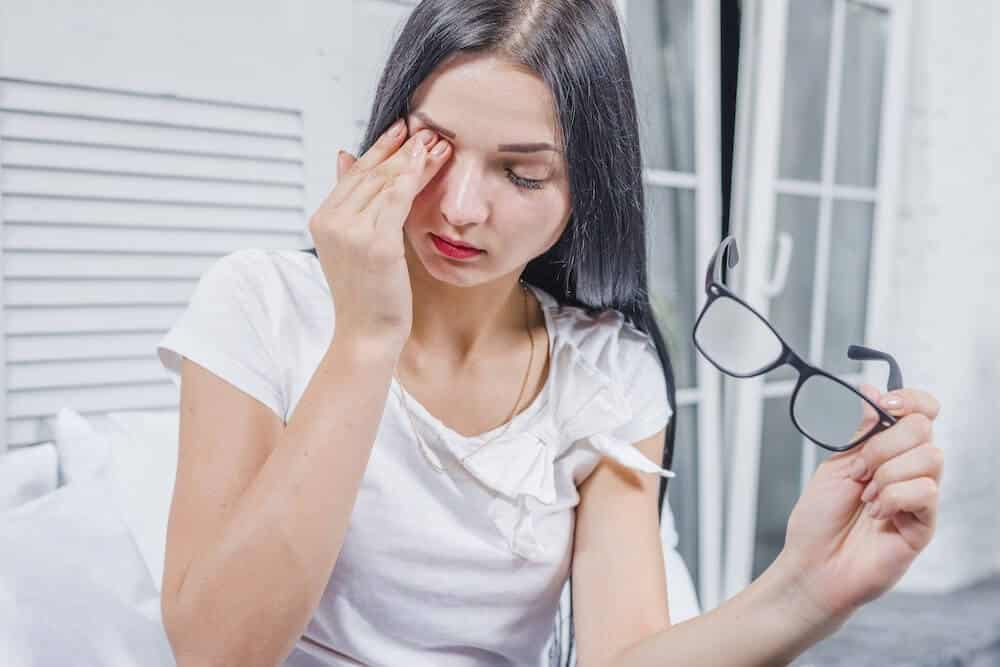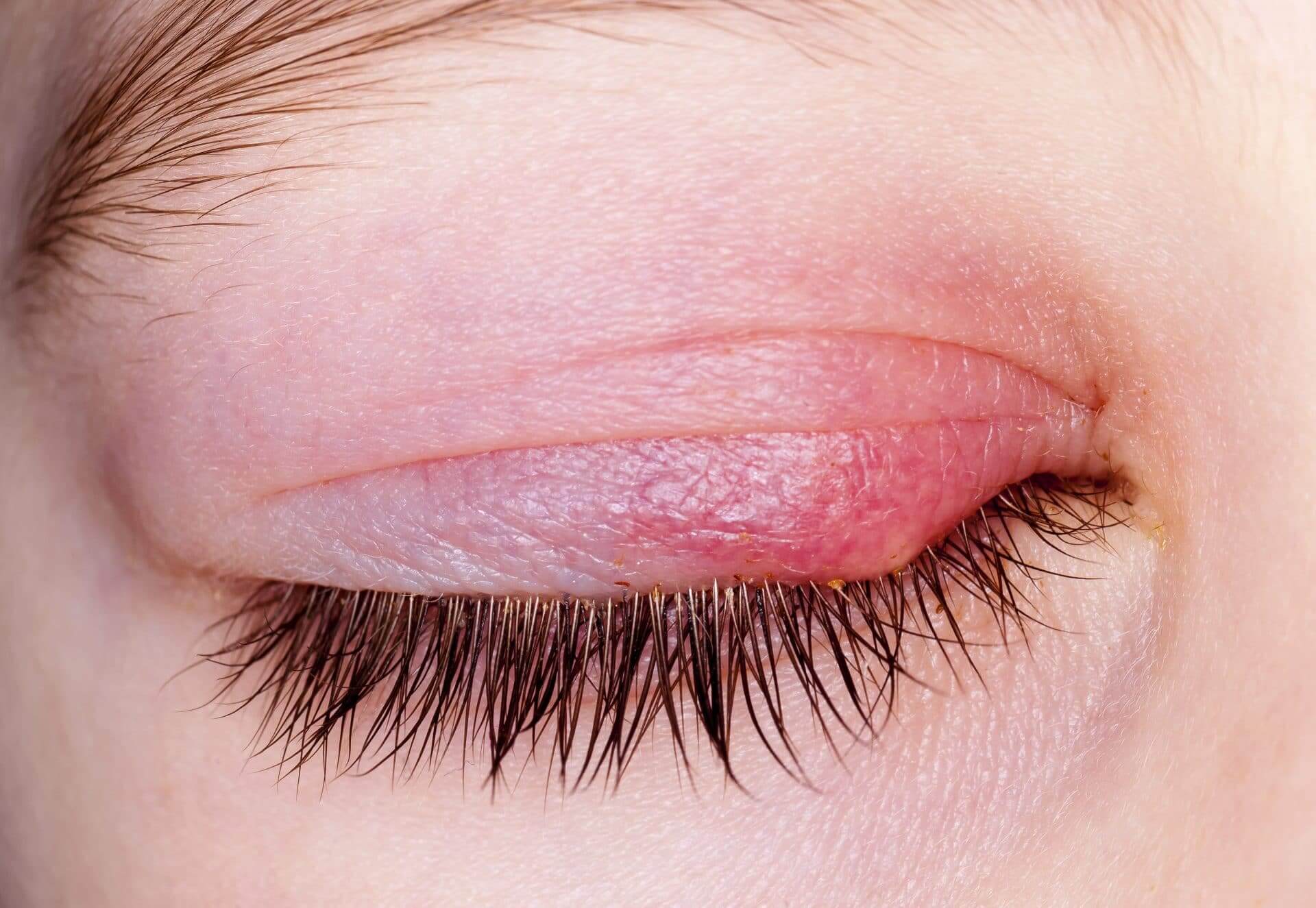Did you know that there are two types of the common stye, and they are caused by a natural bacteria on our skin that we coexist with every day?
What Is Stye?
A stye is a small and painful inflammation that appears as a lump on the inside or outside of the eyelid. They can also be referred to as a cyst, and the medical name for a stye is a hordeolum.
What are the symptoms of Styes?
The main symptoms of a stye include:
- A red lump that develops on or in the eyelid that hurts to touch
- The lump feels hot
- Redness of the eye or eyelid
- Swollen and tender eyelid
- A watery eye
- A pus filled/yellow lump develops
Causes Of Stye

Staphylococcus bacteria often live on skin without causing any harm, but problems begin if they enter the body through a break in the skin. Staphylococcus bacteria usually spreads between people through close skin contact or by sharing contaminated objects, such as towels or makeup.
It is this staphylococcus bacteria that is the usual cause of a stye. The two different types of stye also means the cause of infection is slightly different:
External:
- Eyelash Follicle infection
- The Sebaceous Gland infection. The gland produces an oily substance called sebum which lubricates the eyelash to prevent it drying out.
- The Aprocrine Gland infection. Similar to the sebaceous gland, this sweat gland helps to prevent eyelashes drying out.
Internal:
Meibomian Gland infection. These glands are found on the eyelids and produce an oily liquid, which makes up part of the tear film that covers the eye.
Stye Treatments

- Use a hot/warm compress on the area a few times a day to help draw the infection out. Always use a clean compress each time to prevent further spreading of the bacteria.
- Leave it alone. Further irritation will only increase swelling and pain.
- Avoid makeup.
- Wash your face and hands.
Most styes go away on their own following good hygiene and warm compresses. If the stye is still persistent after 7 – 10 days, vision problems occur or the styes keep recurring, seek medical advice and assistance.
How Can You Prevent Stye?
- Throw out old makeup after an infection. Any makeup that has come into contact with the infected area before or during the stye, and especially eye makeup like mascara, will be harbouring the bacteria and will need to be discarded to prevent future styes.
- Only use eye makeup up to the recommended expiry date (the recommended life of a mascara is 3 months).
- Good standard of hygiene. Wash your face and eyes with water every day, and don’t share facecloths or towels
The Most Common Types Of Stye

The type of stye depends on the overall location in regards to the eyelid, either internal or external.
- An external stye, external hordeolum, is a swelling that develops along the edge of the eyelid. These can sometimes turn into a pus-filled spot that hurts to touch.
- An internal stye, internal hordeolum, is a swelling that develops on the inside of the eyelid. Internal styes are usually less painful than an external stye.
Is Stye Contagious?
The short answer is yes – styes are contagious, but not as much as you’d thought.
There is a lot of confusion about the contagious factor of a stye. As said above, the majority of stye cases are caused by an infection of staphylococcus bacteria already located on the skin, but certain circumstances such as touching a stye and transferring the bacteria this way may lead to an infection of another person and a stye may develop.
The stye itself is not contagious but the bacteria is.
Ready To See Clearly?
Focus has a 100% 20/20 vision success rate for all common short-sighted prescriptions using it’s A-LASIK technique.

